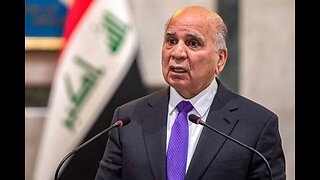Premium Only Content

Justifying Obeying the Milgram Experiments
Join me as I dive into a mind-blowing experiment to see just how far people will go when they think authority is calling the shots!
The Milgram Experiment is one of the most famous psychology studies of all time, and for good reason. Conceived by psychologist Stanley Milgram in the 1960s, it aimed to explore just how obedient humans would be when faced with an authority figure. What he discovered was nothing short of shocking, and it's had a lasting impact on our understanding of human behavior.
The Milgram Experiment poses significant ethical dilemmas, as it blurred the lines between psychological research and manipulation. Participants were led to believe they were taking part in a learning exercise, where they'd administer electric shocks to another person whenever they answered a question incorrectly. In reality, the real study was observing the participants themselves, as they were pressured to continue administering increasingly severe shocks despite their own moral reservations. The fact that most participants went along with the experiment, even when they showed clear signs of distress, raises uncomfortable questions about our willingness to follow orders, no matter the cost.
This experiment has had a profound impact on our understanding of obedience and morality. It's made us question whether we're capable of making sound moral judgments when influenced by an authority figure. The results also sparked debates about the perils of blind obedience and the importance of critically evaluating the instructions we receive from those in power. Moreover, the Milgram Experiment has far-reaching implications for fields like education, where authority figures often hold significant sway over what we're taught and how we think.
The experiment's findings have also led to a reevaluation of the role of situational factors in shaping our behavior. It's become clear that our actions are often determined by the specific context we find ourselves in, rather than any inherent moral character. This realization has significant implications for how we approach issues like corporate conformity, political obedience, and even the Rise of the Nazi party in World War II.
One of the most striking aspects of the Milgram Experiment is how it highlights the power of role-playing in shaping human behavior. Participants were convinced they were taking part in a legitimate scientific study, and this perception alone was enough to make them override their own moral compasses. This finding has significant implications for our understanding of how social roles and norms influence our actions.
Let's dive deeper into the experiment's setup and explore the psychological theories that explain the participants' behavior. The experiment consisted of three main components: the teacher, the learner, and the experimenter. The teacher was the participant themselves, responsible for administering the electric shocks. The learner was an actor, pretending to be a fellow participant receiving the shocks. The experimenter was the authority figure, instructing the teacher to continue with the experiment despite their reservations.
The participants' reactions were striking. Many exhibited visible signs of distress, from sweating to nervous laughter, as they struggled to reconcile their own moral values with the experimenter's instructions. Some even displayed a kind of dissociation, as if they were observing their own actions from outside their bodies. These reactions are telling, as they highlight the intense psychological conflict that arises when our personal morals clash with authority pressure.
One of the most revealing aspects of the experiment is the way participants justified their actions to themselves. Many convinced themselves that they were simply following orders, and that the experimenter was ultimately responsible for the consequences. This kind of moral disengagement is a common coping mechanism, one that allows us to sidestep feelings of guilt or shame by attributing blame to an external authority.
The dramatization of this conflict between personal morals and authority pressure is one of the most shocking aspects of the Milgram Experiment. It's stunning to see how quickly participants surrendered their autonomy, abandoning their own moral principles in favor of obedience to the experimenter. This phenomenon is all the more chilling when we consider its relevance to real-world scenarios, where blind obedience can have devastating consequences.
As we explore the most shocking moments from the experiment, it's striking how dramatically the participants' moral values were overridden by the pressure to conform. One participant, for instance, continued administering shocks even when the learner begged to be released, claiming they had a heart condition. Another participant was brought to tears, yet still continued with the experiment, convinced that the experimenter knew best.
The Milgram Experiment serves as a stark reminder of the dangers of unchecked authority and the importance of critical thinking in our daily lives. By understanding the psychological mechanisms that drive our behavior, we can better resist the pressure to conform and make choices that align with our own moral values.
Thanks for joining me on this journey into the Milgram Experiment. It's a sobering reminder of the importance of questioning authority and staying true to our own moral compasses. What do you think - how far would you go when faced with authority pressure? Let me know in the comments below! Be sure to check out my other videos on psychology experiments for more mind-blowing insights into human behavior.
-
 LIVE
LIVE
SpartakusLIVE
6 hours agoDuos w/ GloryJean on VERDANSK || #1 Most EATING Streamer
1,438 watching -
 DVR
DVR
Spartan (Pro Halo esports Player)
8 hours agoSdcrims no comms, then College match
36.8K -
 34:43
34:43
Stephen Gardner
5 hours ago🚨Trump Lawyer makes TWO HUGE ANNOUNCEMENTS | Benny Johnson
56.1K43 -
 2:17:31
2:17:31
Robert Gouveia
6 hours agoJudge BLOCKS Proof-of-Citizenship! Trump BACK to Supreme Court! Deportee Discovery STAYED!
59.1K24 -

MyronGainesX
20 hours ago $2.13 earnedCollege Debate Reaction, Jordan Peterson Sells Out, Shannon Sharpe Shakedown!
79.3K26 -
 2:01:49
2:01:49
Joker Effect
3 hours agoWE ARE IN THE WILDWEST! Frontier Legends is crazy!
9.91K -
 3:54:43
3:54:43
FrizzleMcDizzle
4 hours agoELDEN RING and I'm officially a creator on RUMBLE
11.4K -
 1:33:35
1:33:35
theoriginalmarkz
6 hours agoEvening News with MarkZ, joined by Jonathan Otto. 04/24/2025
66.3K6 -
 LIVE
LIVE
Lilpaul112
6 hours agoSolos On the Island / Repo Time With the Brrrap Pack Gang!
76 watching -
 3:56:48
3:56:48
GrimmHollywood
5 hours ago🔴LIVE • GRIMM HOLLYWOOD • REPO with the BRRRAP PACK • THEIR FIRST TIME PLAYING •
18.5K